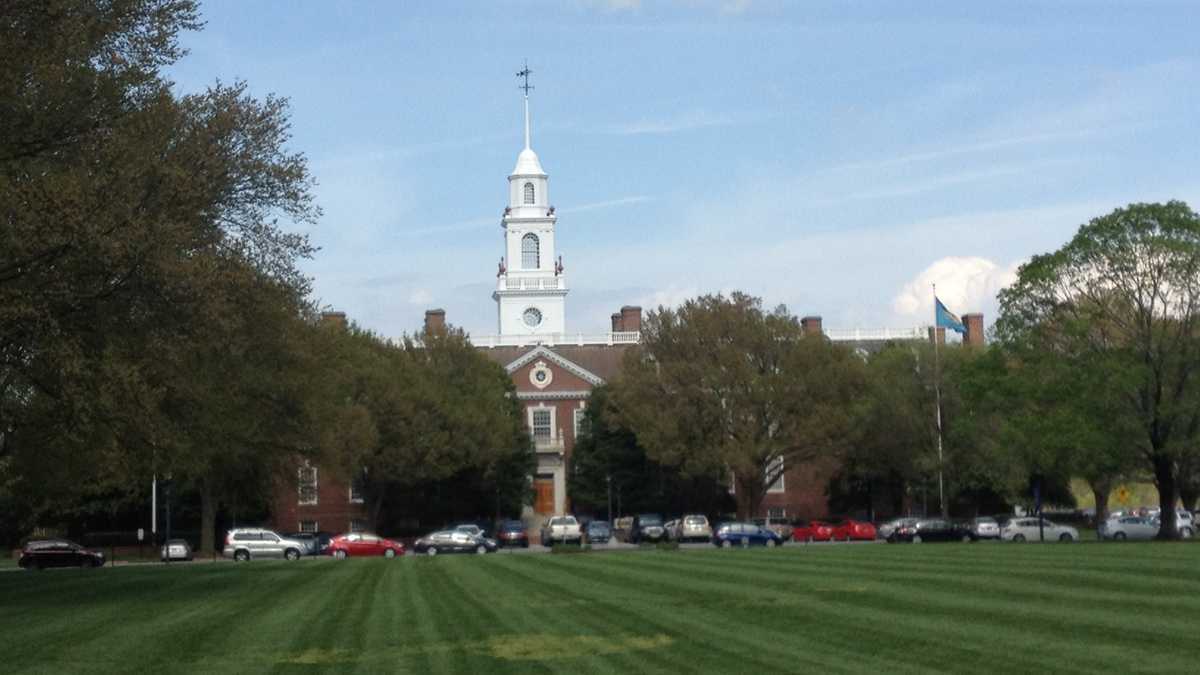Delaware General Assembly passes state budget

(file/NewsWorks)
The Delaware General Assembly voted in a $4.8 billion operating budget Wednesday with a 31-8 vote in the House.
“This was a difficult year, we had to make many difficult cuts, we had to make many challenging decisions about what to fund, and we respect the fact every decision we made had a real impact on peoples’ lives,” said State Rep. Melanie Smith, who heads the joint finance committee. “We thought carefully about what was in Delaware’s best interest.”
Delaware’s budget has taken a hit this year with increases in Medicaid costs with more than $767.4 million coming from the general fund, as well as increase to the debt service, school enrollment and employee related costs.
In addition revenues aren’t growing significantly, and the state estimates only a .4 percent increase in the fiscal year beginning July 2017, while expenditures also are expected to rise.
“We have a mountain ahead of us to continue to manage a budget,” Smith said.
There were several concerns brought up before the vote in the House. State Rep. John Kowalko, D-Newark, said he’s troubled by several cuts, including those related to technology advancements in schools. Kowalko also believes the process of choosing a budget is unfair, and that every representative should vote on each item on the budget.
He also introduced an amendment, as he did last year, to change current language that allows charter schools to hold onto excess transportation funding, but it failed with only eight representatives supporting it.
Rep. Stephanie Bolden, D-Wilmington, said she believes school children in Wilmington are not being afforded opportunities they deserve and said the state has failed them by not redrawing school district lines in the city. A resolution for the redistricting plan to move Wilmington schools from Christina School District to Red Clay Consolidated School District passed in the House, but has not been voted on in the Senate.
“Once again we’re going into the 63rd year of not having any progress for these children,” Bolden said. “We continue to defy the needs of poor, low-income, disadvantaged children.”
State Rep. Joseph Miro, R-Pike Creek Valley, said he believes next year will be even more difficult than this year, and steps to review expenditures in the state are necessary. He said he’d also like there to be a process to ensure individuals aren’t abusing the system when it comes to assistance.
“We need to make sure those individuals receiving the help from the state are in real need of the help being provided,” he said
There are several ways the joint finance committee proposes to ease the financial burden on the state in the future, including reducing the size of government, better overtime management and reviewing health care costs, Smith said.
State Rep. Ruth Briggs King, R-Georgetown, also expressed concern about managing the budget in future years.
“I would suggest next year we have to have the guts to do what it takes to move de forward,” she said. “Next year I believe the forecast will not be greater than it is now. I applaud some of the efforts, but I still feel like we’re a little late on this.”
Smith said the most difficult cut the joint finance committee had to make was $2 billion Gov. Jack Markell, D-Delaware, requested for drug treatment. But substance abuse and mental health will receive $115.7 million for items like housing and treatment.
“That was peoples’ lives that might have been saved with that money so that was a difficult decision,” Smith said.
However she said she believes the state has voted in a budget that provides Delawareans the services they need.
“It was a very difficult year, but we came away with a balanced budget, and services will continue seamlessly on July 1st,” Smith said. “Most Delawareans won’t know we passed a budget, and that’s the way it should be because they won’t notice any disruptions in their daily lives—whether it’s teachers, police, corrections officers—people won’t notice a difference.”
WHYY is your source for fact-based, in-depth journalism and information. As a nonprofit organization, we rely on financial support from readers like you. Please give today.





